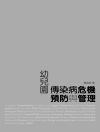In ‘Loyola and the Educational System of the Jesuits, ‘ Thomas Hughes meticulously examines the pedagogical strategies established by St. Ignatius of Loyola and their profound influence on the formation of Jesuit educational institutions. Hughes employs a blend of historical analysis and biographical narrative to explore the evolution of Jesuit education, emphasizing its commitment to holistic formation—intellectually, morally, and spiritually. Through a rich literary style that marries scholarly rigor with accessible prose, Hughes transports readers into the Jesuit framework, elucidating how its principles shaped early modern education and contributed to the cultivation of a critical, reflective citizenry within European and colonial contexts. Thomas Hughes, a noted educational reformer and advocate for progressive pedagogical methods, was deeply influenced by the Jesuit ideals of formation and service. His extensive background in both classical and contemporary educational theories led him to critically assess the Jesuit model as a necessary counterbalance to the increasingly utilitarian focus of modern education. Hughes’s insights reflect a progressive vision, seeking to harmonize intellectual inquiry with ethical cultivation. This book is essential for educators, historians, and scholars of religious studies interested in understanding the intersection between education and spirituality. Hughes’s work invites readers to reflect on the enduring legacy of Jesuit principles in contemporary educational thought, making it a compelling read for anyone passionate about the purpose and direction of education in today’s world.
เกี่ยวกับผู้แต่ง
Thomas Hughes (1822-1896) was a prominent British lawyer, judge, and author, best known for his novel ‘Tom Brown’s Schooldays’, which has become a classic in English literature. Hughes’s literary work often reflects his own experiences and values, including an emphasis on muscular Christianity and the importance of moral education. An alumnus of Rugby School and later Oxford University, his formative years in these educational institutions inspired his writing, particularly his interest in the development of character through the educational system. This is manifest in his lesser-known work, ‘Loyola and the Educational System of the Jesuits’ (1892), wherein Hughes scrutinizes the pedagogical model established by the Society of Jesus, founded by Ignatius Loyola. The text offers a comprehensive study of Jesuit education, highlighting its methodologies, objectives, and influence, which at the time of publication provided a distinct contrast to prevailing educational practices in Victorian England. Hughes’s literary style often incorporates his legal training, presenting well-structured arguments that display a clear narrative flow suited to the scholarly and casual reader alike. Through his writings, Hughes contributed to ongoing discussions about education, ethics, and society in the 19th century, earning recognition as a significant figure in Victorian literature and educational reform.












